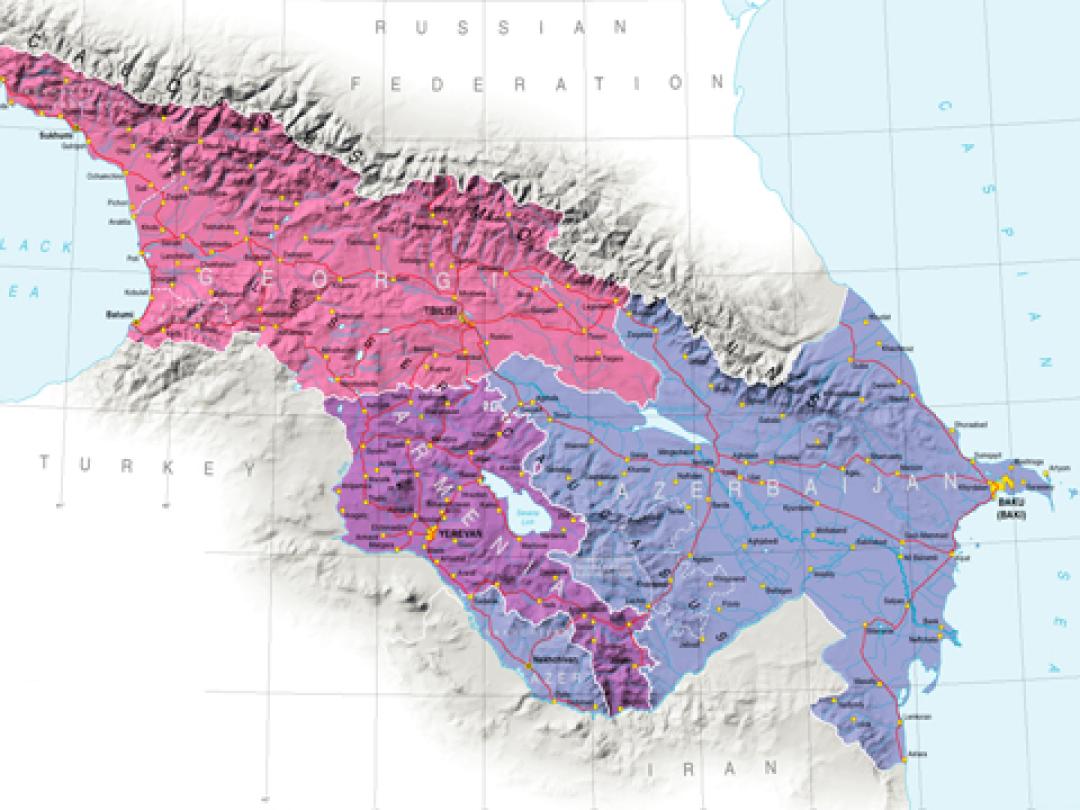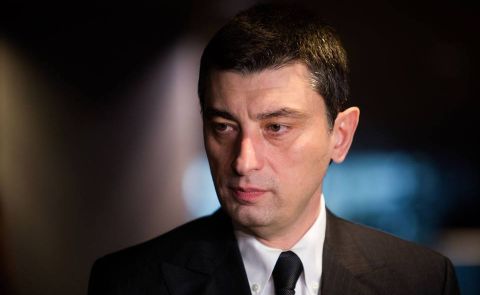
Armenia-Azerbaijan Border Delimitation Progress Amid Tensions

In his recent statement to journalists in Stepanavan, Armenian PM Prime Minister Nikol Pashinyan emphasized the political significance of recent developments, notably the resolution of issues between Armenia and Azerbaijan through dialogue. Pashinyan underscored the importance of neither overestimating nor underestimating these developments, highlighting that it marks the first instance of Armenia and Azerbaijan resolving issues at the negotiating table.
Nikol Pashinyan also announced that Russian border guards would be withdrawn from Armenia’s Tavush Province following the delimitation of the border with Azerbaijan. Addressing reporters in Stepanavan, Pashinyan stated that deploying Russian border guards to the Armenian-Azerbaijani border in Tavush was prompted by a specific situation now undergoing significant changes. He emphasized that the transformation signifies a shift from a frontline to a border, symbolizing a move toward peace.
On April 19, the eighth session of the border delimitation commissions, chaired by Deputy Prime Ministers Mher Grigoryan and Shahin Mustafayev, took place at the Armenia-Azerbaijan border. A protocol was signed, and both sides agreed to determine the date and location of the next meeting. According to the Armenian Foreign Ministry’s press release, the meeting resulted in a preliminary agreement to align border sections such as Baganis-Baganis Ayrim, Voskepar-Ashag Askipara, Kirants-Khairumli, and Berkaber-Kyzyl Hajil with the legally established inter-republican border that existed at the time of the Soviet Union’s dissolution.
However, despite these diplomatic efforts, tensions persisted in the Tavush region since April 19, with hundreds of citizens blocking the interstate road in the Baganis and Kirants areas. Residents of border villages in Tavush express significant concerns regarding the potential border demarcation with Azerbaijan based on Soviet-era configurations. They fear such demarcation may result in losing access to their farmlands and create challenges for communication with the rest of Armenia, as certain road segments could fall under Azerbaijani control. Additionally, there are apprehensions that Armenia’s withdrawal from its current military positions could increase the vulnerability of local civilians to potential armed attacks from Azerbaijan.
Activist Edgar Ghazaryan, a former ambassador to Poland, claimed that the statement issued by the Armenian Foreign Ministry on Friday regarding a border delimitation agreement between Armenia and Azerbaijan contradicts the Armenian Constitution and other laws.
“Even if any agreement is signed, it cannot enter into force before the Constitutional Court verifies its compliance with the Constitution and the National Assembly ratifies it,” he outlined.
Global Leaders Support Armenia-Azerbaijan Border Delimitation Agreement
UN Secretary-General António Guterres has welcomed the agreement reached between Armenia and Azerbaijan. The UN Secretary-General’s spokesman, Stephane Dujarric, released a statement confirming this.
“The Secretary-General is closely following the process of normalization of relations between Armenia and Azerbaijan. He welcomes the agreement reached on April 19 between the relevant state commissions on the delimitation of the state border between Armenia and Azerbaijan and calls on the parties to continue the delimitation and demarcation of the remaining sections of the border and to resolve all outstanding bilateral issues in order to achieve full normalization of relations,” the statement says.
US Secretary of State Antony Blinken said in his microblog on X, "We welcome the announcement that Armenia and Azerbaijan have agreed upon the 1991 Alma Ata declaration as the basis for border delimitation between the two countries.”
“This is an important step towards concluding a durable and dignified peace agreement,” he added.
The Turkish Foreign Ministry also issued a statement evaluating the agreement reached on April 19, 2024, by the Azerbaijani-Armenian Border Delimitation Commission.
“We welcome the agreement reached on April 19, 2024, by the Azerbaijani-Armenian Border Delimitation Commission to return to Azerbaijan four villages that have been under occupation for 30 years and to continue the delimitation works. This positive development achieved as a result of direct negotiations is an important step towards signing a final peace agreement,” the Turkish Foreign Ministry said in a statement.
The German Foreign Ministry emphasized that the agreement between Armenia and Azerbaijan on the 1991 Alma-Ata Declaration as a basis for border delimitation removes a significant barrier to a peace agreement. “Germany remains ready to do its utmost to contribute to the achievement of lasting peace,” the statement said.
The head of the European Council, Charles Michel, also highlighted the significance of border delimitation based on the unequivocal recognition of each country's territorial integrity.
EU Special Representative for the South Caucasus Toivo Klaar described the agreement on delimitation reached between Armenia and Azerbaijan as “encouraging.” In a post on X, Klaar expressed optimism about the progress made by the Armenian and Azerbaijani border commissions based on legal documents and the 1991 Almaty Agreement. He reiterated the EU’s full support for the negotiation process and its goal of achieving a comprehensive and lasting settlement.
Read also: Border progress: Azerbaijan and Armenia Reach Agreement on Demarcation Process
See Also


Pashinyan: “We Are Not Seeking to End Russian Troop Presence in Armenia”

Russia Begins 24/7 Radiation Monitoring in Dagestan After Iranian Nuclear Incident

How Do Caucasus States React to Israel-Iran War?

Weekly Brief on Military Situation in the South Caucasus (9–15 June 2025)

